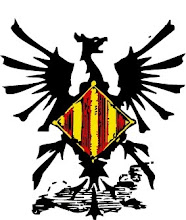 A recent poll shows that a majority of Spanish citizens approve a State Pact between the two main political parties (PSOE and PP) in order to diminish the current weight of nationalist and independentists parties in the Spanish political system.
A recent poll shows that a majority of Spanish citizens approve a State Pact between the two main political parties (PSOE and PP) in order to diminish the current weight of nationalist and independentists parties in the Spanish political system.The central element of this Pact will be a new electoral law that probably will include measures such a new spanish-wide threshold, in order to eliminate from the distribution of seats those lists with less than 5% of the vote legally cast. Currently there is a constituency level threshold of 3%.
In last spanish elections, minor parties show the following results:
Izquierda Unida (Unite Left, including Spanish Communist Party), 4,96%
Convergència i Unió (Convergence and Union, Catalan Nationalists), 3,23%
Esquerra Republicana de Catalunya (Republican Left of Catalonia, Independentists), 2,52%
Euzko Alderdi Jeltzalea (Basque Nationalist Party), 1.63%
Coalición Canaria (Canary Coalition, regionalists), 0,91%
Bloque Nacionalista Galego (Galician National Bloc, nationalists), 0,81%
Chunta Aragonesista (Aragonese Junta, regionalists), 0.36%
Eusko Alkartasuna (Basque Solidarity, Independentists), 0.31%
Nafarroa Bai (Navarra Yes, Navarrese Pro-Basque List), 0,24%
Together they obtained 38 seats out of 350 at Congreso de los Diputados (Lower House of Spanish Cortes Generales). If, in 2004 the 5% Spanish-wide electoral threshold was enacted, then all these parties would have obtained no representation at all. As a consequence, only two parties were represented (Socialist and Popular parties) in the Lower House. Such a simplification of the political scenario would imply the negation of national, cultural, and linguistic complexity existing in the current Spanish State.
 As a consequence, Spanish nationalism, the quintaessencial representant of, in Michael Billig's terms, banal nationalism, will be the only represented at the Lower House, since both main Spanish parties, are strong committed to defend a mononational vision of the Spanish state.
As a consequence, Spanish nationalism, the quintaessencial representant of, in Michael Billig's terms, banal nationalism, will be the only represented at the Lower House, since both main Spanish parties, are strong committed to defend a mononational vision of the Spanish state.Of course, that is unacceptable, and will imply the polarization of national question issue in one of the European Union states, since either Catalans nor other nationalists and independentists under the Spanish rule will give up our Fight for Freedom and Independence. The example of other nations that have accessed to independence will guide us.
As the political say goes, there is nothing that ressembles more to a Rightist Spanish militant than a Leftist Spanish militant. One prefers a Red Spain than a broken one. The other prefers a Blue Spain (like Francoist regime's) than a broken one.
No doubt about that.

No comments:
Post a Comment